- Home
- Captain W E Johns
26 Biggles Sweeps The Desert Page 3
26 Biggles Sweeps The Desert Read online
Page 3
Concerned, but not in any way alarmed, he flew on, and as he flew he made a careful reconnaissance of the grey rocks on his right. At one point, far away, something flashed.
Pushing up his sun goggles he saw a quivering point of white light among the rocks.
Only three things, he knew, could flash like that in the desert. One was water, another, polished metal, and the other, glass. He knew it could not be water or there would be vegetation, probably palms. He did not think it could be metal because the only metal likely to be in such a place was a weapon of some sort, carried by an Arab, in which case the point of light would not be constant. That left only glass. It looked like glass. He had seen plenty of broken glass winking at him in districts where there were human beings.
Indeed, in Egypt he had seen Biggles follow a trail by such points of light, the flashes there being made by empty bottles thrown away by thirsty travellers.
His curiosity aroused he turned towards the object. He realized that this was taking him farther away from Biggles, but he thought he was justified. In any case, he expected no difficulty in returning to Biggles after he had ascertained what it was that could flash in a place where such a thing was hardly to be expected. Putting his nose down, both for speed and in order to lose more height, he raced towards the spot, and in five minutes was circling low over it.
He had only to look once to see what it was. Piled up against the base of a low but sheer face of rock, was an aircraft. The flashing light had been caused by its shattered windscreen. There was no sign of life, and although he flew low over it several times trying to make out the registration letters, he could not, because both wings and fuselage were crumpled. Nor could he be sure of the type. The only letter he could read was G, which told him that the aircraft was a British civil plane, evidently one of the missing machines which Biggles was so anxious to locate. A ghastly thought struck him. Could it be the Dragon they were out to escort? Were they too late after all? Were there, in that crumpled cabin, injured men, perhaps dying of thirst?
This possibility threw his brain into a turmoil. What ought he to do? Was he justified in calling Biggles on the radio? He wasn't sure. He knew Biggles was most anxious that the radio should not be used if it could possibly be avoided. Should he try to find Biggles?
Even if he succeeded, he had no way of conveying the information he possessed. Biggles would probably return to the base, and it would be hours before they could get back.
Ginger did, in fact, turn towards the south, and fly a little way, hoping to see Biggles; but then it struck him that he might not be able to find the crashed machine again; it would certainly be no easy matter, lying as it did in a shapeless wilderness of rock.
Worried, Ginger swung round and raced back to the wreck. He could see clearly what had happened. Behind the rock there was a small, fairly level area of sand. Wheel tracks showed that the pilot had tried to get down on it, but had been unable to pull up before colliding head-on with the cliff. Had the sand area been larger Ginger would have felt inclined to risk a landing; but the area was too small; if a comparatively slow commercial machine could not get in, what chance had he, in a Spitfire? It struck him that the pilot must have been hard pressed to attempt a landing in such a place. But uppermost in his mind was the horror that someone might still be alive in the wreck, too badly injured to move. It made the thought of flying away abhorrent to him. Clearly, at all costs —and he was well aware of the risks —he must try to get down to satisfy himself that the machine was really abandoned.
Climbing a little, and circling, he soon found what he sought —a long, level area of sand.
It was not entirely what he would have wished, for it had length without breadth, forming, as it were, the base of a long, rock-girt gully. But still, he reflected, there was no wind to fix the direction of landing, so he had the full length of the gully to get in. His greatest fear was that the sand might be soft enough to clog his wheels and pitch him on his nose, or failing that, prevent him from getting off again. There was no way of determining this from the air; it was a risk he would have to take, and he prepared to take it.
First he took the precaution of noting carefully the direction of the crash in relation to the gully, for they were about five hundred yards apart; then, lining up with his landing ground, he cut the engine and glided down. To do him justice, he was fully aware of the risks he was taking, but he thought the circumstances justified them. Concentrating absolutely on his perilous task, he flattened out, held off as long as he dare, and then—holding his breath in his anxiety—he allowed the machine to settle down. His mouth went dry as the wheels touched, but an instant later he was breathing freely again as the Spitfire ran on to a perfectly smooth landing, finishing its run almost in the middle of the gully.
Switching off his engine, he jumped down and stood for a moment stretching his cramped muscles while he regarded the scene around him. His first impression was one of heat. It was appalling, as though he had landed in an oven. The air, the sand and the rock all quivered as the sun's fierce lances struck into them. The second thing was the silence, an unimaginable silence, a silence so profound that every sound he made was magnified a hundredfold. There was not a sign of life —not an insect, not a blade of grass. Even the hardy camel-thorn had found the spot detestable.
In such a place a man would soon lose his reason, thought Ginger, as, after throwing off his jacket, which he found unbearable, he walked quickly in the direction of the wreck.
When he had gone about a hundred yards he remembered Biggles' order about not moving without a water-bottle, and he hesitated in his stride, undecided whether to return to the machine for it or to go on without it. He decided to go on. After all, he mused, it was only a short distance to the wreck, and he would be back at his own machine in a few minutes. Nothing could happen in that time. It was not as though he were going on a journey. Thus he thought, naturally, perhaps, but in acting as he did he broke the first rule of desert travel.
,It did not take him long to reach the machine. He approached it with misgivings, afraid of what the cabin might hold. While still a short distance away he saw that it was not the Dragon, but a similar type, a Rapide , carrying the registration letters G—VDH. The crash had been a bad one, the forward part of the aircraft having been badly buckled, and consequently he breathed a sigh of relief when he found the cabin empty. But three of the passengers, or crew, had not gone far. Close at hand were three heaps of sand, side by side, obviously graves, but there was no mark to show who the victims were. Ginger considered the pathetic heaps gloomily before returning to the machine. There was nothing in it of interest. There was no luggage. Even the pilot and engine log-books had been taken from their usual compartment in the cockpit. Further examination revealed the reason why the machine had attempted to land. Across the nose, and also through the tail, were unmistakable bullet holes, and Ginger's face set in hard lines when he realized that the defenceless machine had been shot down. A number of questions automatically arose. In the first place, why was the machine so far off its track? For off its compass course it most certainly was. Enemy aircraft must have done the shooting, but where were the surviving passengers? Had they buried their dead and then set off on a hopeless march towards civilization?
Ginger found the answers to some of these questions in the sand. The sand on the graves had been patted smooth by a spade, or similar implement. Such a tool would not be carried by the aircraft. The absence of footprints leading away from the crash puzzled him, but he soon found a clue which solved that particular problem. A set of wheel tracks told the story. A wheeled vehicle, keeping close to the face of the low cliff, had come almost to the crash. It had turned, and then gone away in the direction from which it had come—that is, towards the north.
The tragic story was now fairly plain to read. The machine, which for some unexplained reason had got off its course, had been shot down. The pilot, or pilots, responsible for shooting it down had informed their base, no
ting the spot where the crash had occurred, with the result that a vehicle had been sent out to examine it. Three passengers had perished. Their enemies had buried them and taken the survivors away. That was all, and as far as Ginger was concerned it was enough. The sooner Biggles knew about his discovery the better. In any case, he was already finding the heat more than he could comfortably bear. Pondering on the tragedy, he set off on the return journey to the Spitfire.
He had gone about half-way when he heard a sound that caused him to pull up short. It was the drone of an aircraft, still a long way off, but approaching, and the shrill whine of it told him that it was running on full throttle. At first he assumed, naturally, that it was Biggles, but as he stood listening his expression became one of mixed astonishment and alarm. There was more than one aircraft—or at any rate more than one engine. Then, as he stood staring in the direction of the sound, there came another, one that turned his lips dry with apprehension. It was the vicious grunt of multiple machine-guns.
He dived for cover, for he was standing in the open and did not want to be seen, as a Dragon suddenly took shape in the haze. It was flying low, running tail up on full throttle and turning from side to side as the pilot tried desperately to escape the fire of three fighters
that kept him close company. It did not need the swastikas that decorated them to tell Ginger what they were. Their shape was enough. They were Messerschmitts.
As soon as he realized what was happening he threw discretion to the winds and raced like a madman towards his Spitfire, but before he had gone fifty yards he knew he would be too late. The one-sided running fight had swept over him, and a jagged escarpment hid it from view. The machine-gunning ended abruptly, and the roar of engines seemed suddenly to diminish in volume.
Although he could not see, Ginger could visualize the picture. The British pilot, realizing the futility of trying to escape from its attackers, was trying to land, and so save the lives of his passengers. It was the only sensible thing to do.
And then, as Ginger stood staring white-faced in the direction in which the machines had disappeared, came a sound which, once heard, is never forgotten. It was the splintering crackle of a crashing aeroplane. The distance he judged to be not more than four or five miles away.
For a few seconds the drone of the Messerschmitts continued, as, no doubt, they circled round the remains of the Dragon; then the sound faded swiftly, and silence once more settled over the desert.
Now Ginger did what Was perhaps a natural thing, but a foolish one—as he realized later. Acting on the spur of the moment, without stopping to think, he dashed up the rock escarpment which hid the tragedy from view. Panting and gasping, for the heat of the rock was terrific, he reached the top, only to discover that another ridge, not more than a hundred yards away, still hid what he was so anxious to see. So upset was he that he was only subconsciously aware of the blinding heat as he ran on to the ridge, again to discover that an even higher ridge was in front of him.
He pulled up short, suddenly aware of the folly of what he was doing. Already he was hot, thirsty and exhausted from emotion and violent movement in such an atmosphere.
He realized that he had been foolish to leave the Spitfire without his water-bottle. He needed a drink—badly. He could not see the Spitfire from where he stood, but he knew where it was—or thought he did—and made a bee-line towards the spot.
For a time he walked confidently, and it was only when he found himself face to face with a curiously shaped mass of rock that he experienced his first twinge of uneasiness.
He knew that he had never seen that particular rock before; it was too striking to be overlooked. Still, he was not alarmed, but simply annoyed with himself for carelessness which resulted in a loss of valuable time.
Turning slightly towards a rock which he thought he recognized, he walked on, only to discover that he had been mistaken. It was not the rock he had supposed. He began to hurry now, keeping a sharp lookout for something that he could recognize. But there was nothing, and irritation began to give way to fear. Fragments of Biggles' warning drifted into his memory, such pieces as 'shrivelling like an autumn leaf.'
He had been following a shallow valley between the rocks, and it now struck him that if he climbed one of the highest rocks he ought to be able to see his machine or the crashed Rapide. Choosing an eminence, he clambered to the summit—not without difficulty, for it was hot enough to burn his hands. The sight that met his eyes horrified him. On all sides stretched a wilderness
of rock and sand, colourless, shapeless, hideous in its utter lifelessness.
He discovered that his mouth had turned bricky dry, and for once he nearly gave way to panic. No experience in the air had ever filled him with such fear. His legs seemed to go weak under him. Slowly, for he was terrified now of hurting himself and thus making his plight worse, he descended the rock and ran to the next one, which he thought was a trifle higher. Looking round frantically, he was faced with the same scene as before. It all looked alike/ Rock and sand . . . sand and rock, more sand, more rock.
Running, he began to retrace his footsteps—or so he thought—to the escarpment, and was presently overjoyed to find his own footprints in the soft sand. He followed them confidently, feeling sure that they would take him back to the crash. Instead they brought him back to the same place. He had walked in a circle. With growing horror in his heart he realized that he was lost, and he stood still for a moment to get control of his racing brain.
Bitterly now he repented his rash behaviour—not that it did any good. The silence really frightened him. It was something beyond the imagination. It seemed to beat in his ears. A falling pebble made a noise like an avalanche. He trudged on through a never-altering world. All he could see was rock and sand, except, above him, a dome of burnished steel.
Time passed; how long he did not know. He was not concerned with time. All he wanted was the Spitfire, and the water that was in his water-bottle. The idea of water was fast becoming a mania. Very soon it was torture. Several times he climbed rocks, but they were all too low to give him a clear view. The loneliness and the silence became unbearable, and he began to shout for the sake of hearing a human voice. He could no longer look at the sky; it had become the open door of a furnace. He put his hands on his head, which was beginning to ache. He no longer perspired, for the searing heat snatched away any moisture as soon as it was formed. He felt that his body was being dried up—as Biggles had said—like a shrivelled leaf.
Hopelessness took him in its grip. He knew he was wandering in circles, but he had ceased to care. All he wanted to do was drink. His skin began to smart. His feet were on fire. His •tongue was like a piece of dried leather in his mouth. Sand gritted between his teeth. The rocks began to sway, to recede, then rush at him. Rock and sand. It was always the same. A white haze began to close in on him. Presently it turned orange. He didn't care. He didn't care about anything. He could only think of one thing—water.
He walked on, muttering. The rocks became monsters, marching beside him. He shouted to scare them away, but they took no notice. He saw Biggles sitting on one, but when he got to it it was only another rock. Beyond, he saw a line of blue water, with little flecks of white light dancing on it. It was so blue that it dazzled him. Shouting, he ran towards it, but it was always the same distance away, and it took his reeling brain some little time to realize that it was not there. He began to laugh. What did it matter which way he went? All ways were the same in this cauldron. More monsters were coming towards him. He rushed at them and beat at them with his fists. He saw blood on his knuckles, but he felt no pain. The sky turned red. Everything turned red. The sand seemed to be laughing at him. He hated it, and in his rage he knelt down and thumped it. It only laughed all the louder. The voice sounded very real. He tried to shout, but he could only croak.
Chapter 4
Shadows In The Night
Suddenly Ginger became conscious that he was drinking; that water, cool, refreshing wat
er, was splashing on his face. He knew, of course, that it wasn't true, but he didn't mind that. It was the most wonderful sensation he had ever known, and he only wanted it to go on for ever. His great fear was that it would stop; and, surely enough, it did stop.
Opening his eyes, he found himself gazing into the concerned face of his leader.
Àll right, take it easy,' said Biggles.
`You were—just about—in time,' gasped Ginger.
Ànd you, my lad, have had better luck than you deserve.' Compassion faded suddenly from Biggles' face; the muscles of his jaws tightened. 'I seem to remember making an order about all ranks carrying water-bottles,' he said in a voice as brittle as cracking ice. '
If we were within striking distance of a service depot I'd put you under close arrest for breaking orders. As it is, if you feel able to move, we'd better see about getting out of this sun-smitten dustbin. It will be dark before we get back as it is.'
Ginger staggered to his feet. 'Sorry, sir,' he said contritely.
`So you thundering well ought to be,' returned Biggles grimly. 'Why did you land in the first place?'
Ì saw a crashed aircraft, and came down to see if there was anyone in it.'
Biggles started. 'A crash? Where?'
Ginger shrugged his shoulders helplessly, 'I don't know, but it can't be far away. Do you know where my machine is?'
`Yes, I landed by it. I saw it from some way off and went straight to it.'
`That's probably why you didn't see the crash; it's lying close up against a cliff. It's a Rapide. It was the flash of broken glass that took me to it. Somehow I'd got off my course.'
Ì can't blame you for that,' answered Biggles. 'I had the same experience. Magnetic interference was put up to affect our compasses—or rather to affect the compass of the Dragon.'
`Great Scott! I'd almost forgotten,' declared Ginger. `You're dead right. The Dragon came this way. It was being attacked by three Messerschmitts. They roared right over me, but I reckon they were too concerned with their own affairs to see me. That's what started my trouble. I heard a machine crash some way off, and instead of returning to my Spitfire I climbed an escarpment to see if I could see the crash. I couldn't see it, though.

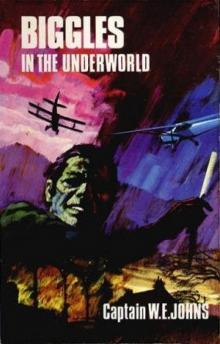 Biggles in the Underworld
Biggles in the Underworld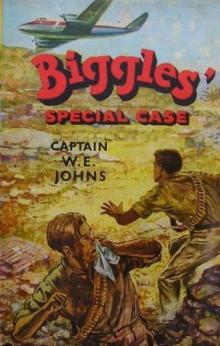 Biggles' Special Case
Biggles' Special Case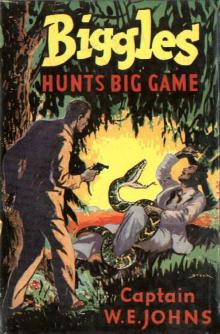 34 Biggles Hunts Big Game
34 Biggles Hunts Big Game 03 Now To The Stars
03 Now To The Stars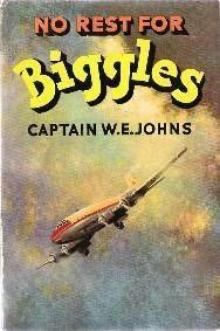 55 No Rest For Biggles
55 No Rest For Biggles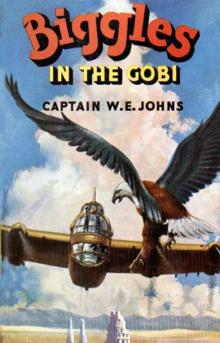 46 Biggles in the Gobi
46 Biggles in the Gobi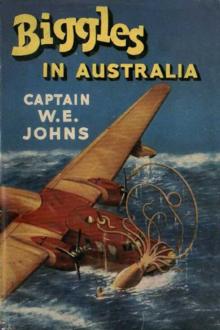 52 Biggles In Australia
52 Biggles In Australia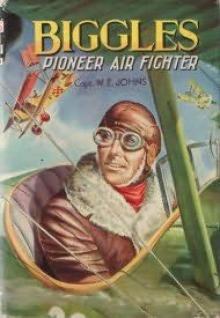 51 Biggles Pioneer Air Fighter
51 Biggles Pioneer Air Fighter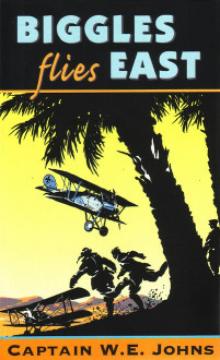 05 Biggles Flies East
05 Biggles Flies East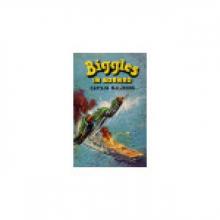 28 Biggles In Borneo
28 Biggles In Borneo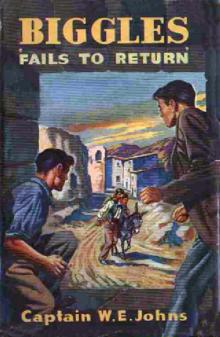 29 Biggles Fails to Return
29 Biggles Fails to Return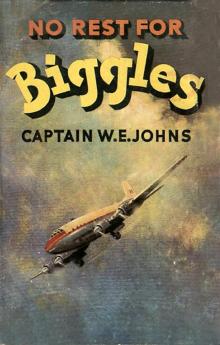 55 No Rest For Biggles (v2)
55 No Rest For Biggles (v2)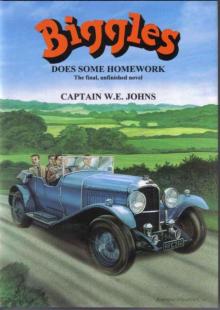 Biggles Does Some Homework
Biggles Does Some Homework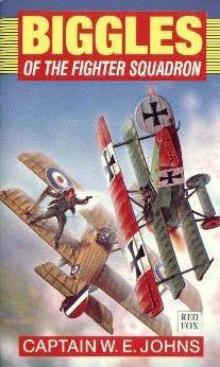 Biggles of the Camel Squadron
Biggles of the Camel Squadron 35 Biggles Takes A Holiday
35 Biggles Takes A Holiday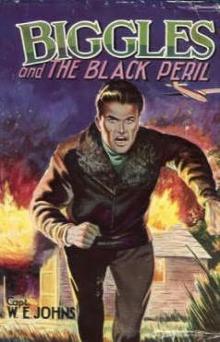 Biggles And The Black Peril (06)
Biggles And The Black Peril (06)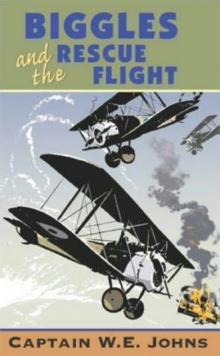 17 Biggles And The Rescue Flight
17 Biggles And The Rescue Flight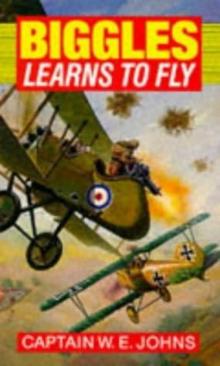 Biggles Learns To Fly
Biggles Learns To Fly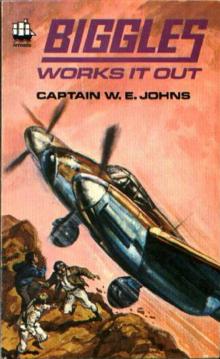 40 Biggles Works It Out
40 Biggles Works It Out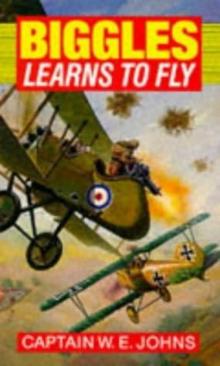 05 Biggles Learns To Fly
05 Biggles Learns To Fly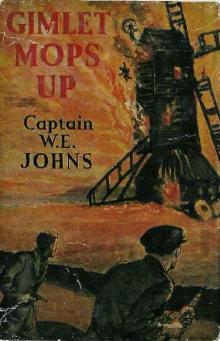 04 Gimlet Mops Up
04 Gimlet Mops Up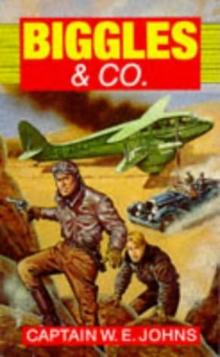 10 Biggles and Co
10 Biggles and Co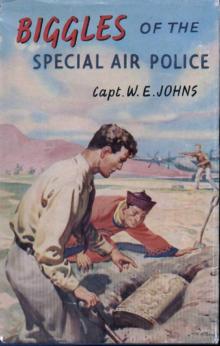 47 Biggles Of The Special Air Police
47 Biggles Of The Special Air Police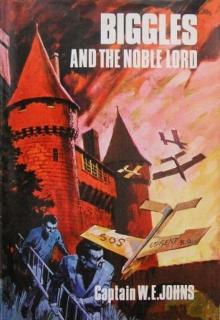 Biggles and the Noble Lord
Biggles and the Noble Lord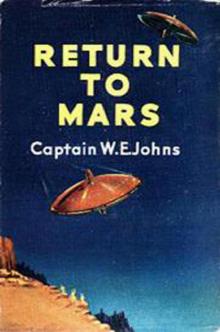 T2 Return To Mars
T2 Return To Mars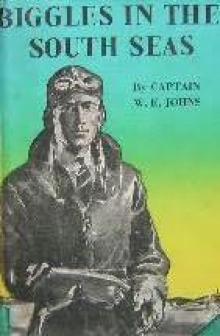 21 Biggles In the South Seas
21 Biggles In the South Seas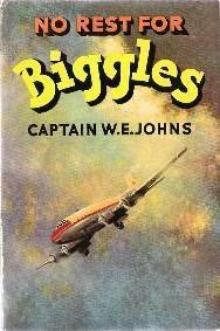 No Rest For Biggles
No Rest For Biggles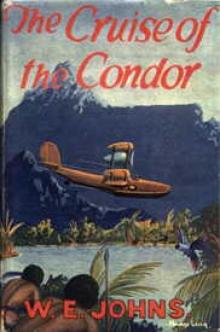 Biggles In The Cruise Of The Condor (02)
Biggles In The Cruise Of The Condor (02)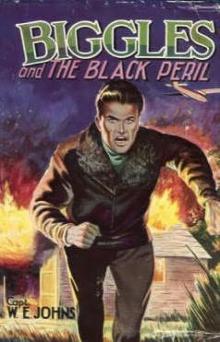 06 Biggles And The Black Peril
06 Biggles And The Black Peril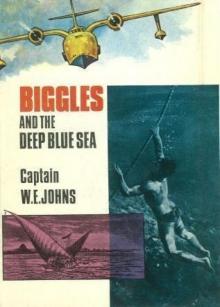 Biggles and the Deep Blue Sea
Biggles and the Deep Blue Sea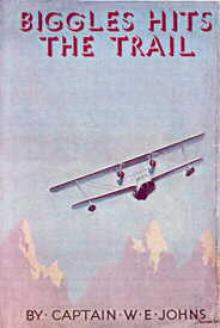 06 Biggles Hits The Trail
06 Biggles Hits The Trail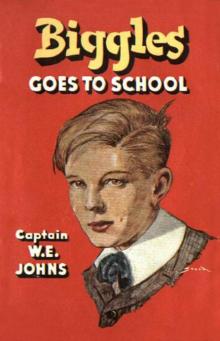 39 Biggles Goes To School
39 Biggles Goes To School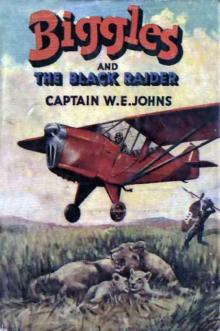 44 Biggles and the Black Raider
44 Biggles and the Black Raider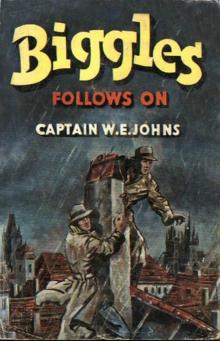 42 Biggles Follows On
42 Biggles Follows On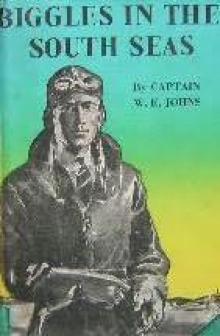 Biggles In the South Seas
Biggles In the South Seas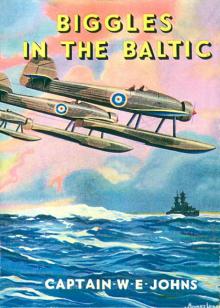 21 Biggles In The Baltic v3
21 Biggles In The Baltic v3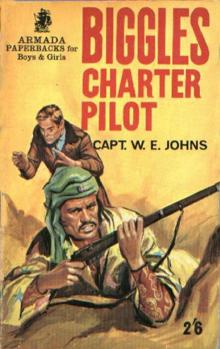 27 Biggles - Charter Pilot
27 Biggles - Charter Pilot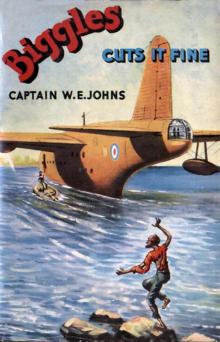 49 Biggles Cuts It Fine
49 Biggles Cuts It Fine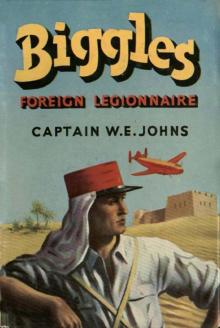 51 Biggles Foreign Legionaire
51 Biggles Foreign Legionaire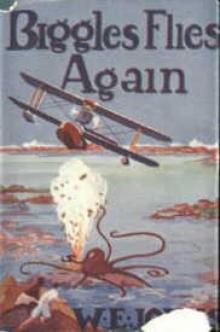 04 Biggles Flies Again
04 Biggles Flies Again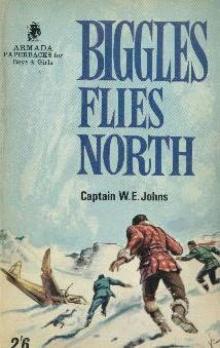 16 Biggles Flies North
16 Biggles Flies North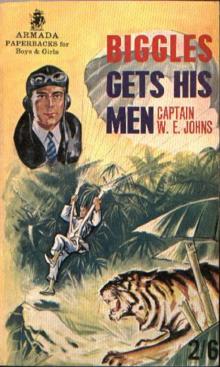 37 Biggles Gets His Men
37 Biggles Gets His Men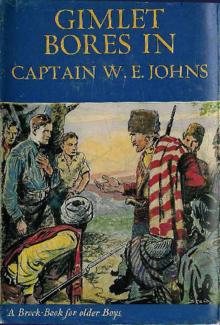 07 Gimlet Bores In
07 Gimlet Bores In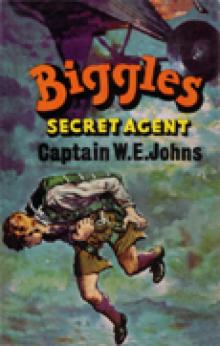 19 Biggles Secret Agent
19 Biggles Secret Agent 32 Biggles In The Orient
32 Biggles In The Orient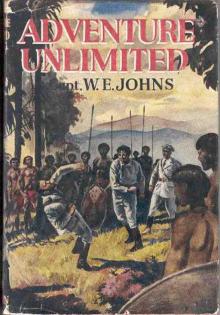 Adventure Unlimited
Adventure Unlimited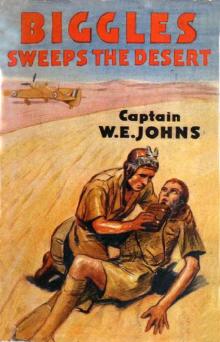 26 Biggles Sweeps The Desert
26 Biggles Sweeps The Desert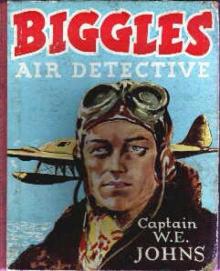 Biggles Air Detective (43)
Biggles Air Detective (43) 36 Biggles Breaks The Silence
36 Biggles Breaks The Silence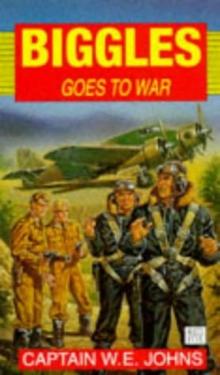 14 Biggles Goes To War
14 Biggles Goes To War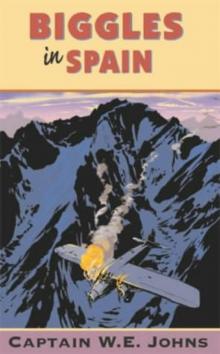 18 Biggles In Spain
18 Biggles In Spain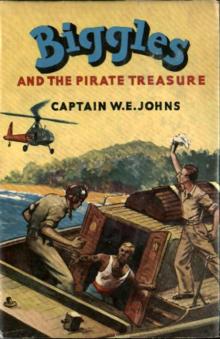 50 Biggles and the Pirate Treasure
50 Biggles and the Pirate Treasure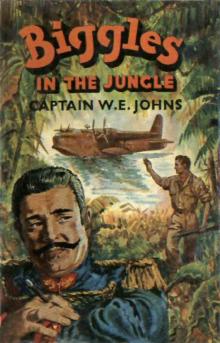 25 Biggles In The Jungle
25 Biggles In The Jungle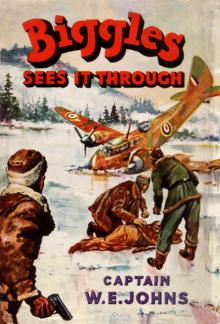 23 Biggles Sees It Through
23 Biggles Sees It Through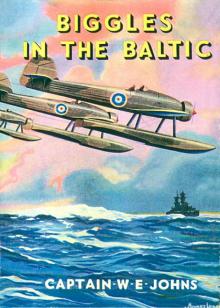 21 Biggles In The Baltic
21 Biggles In The Baltic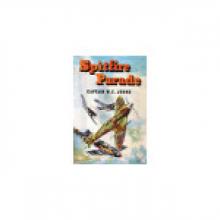 24 Spitfire Parade
24 Spitfire Parade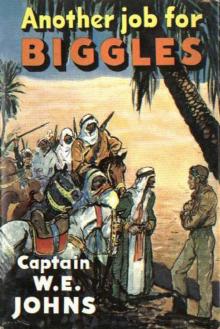 38 Another Job For Biggles
38 Another Job For Biggles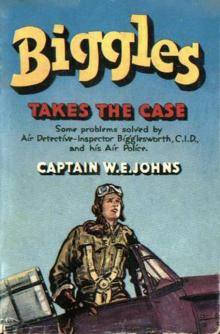 41 Biggles Takes The Case
41 Biggles Takes The Case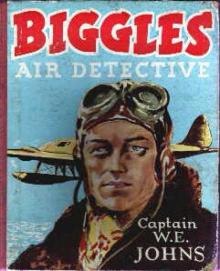 43 Biggles Air Detective
43 Biggles Air Detective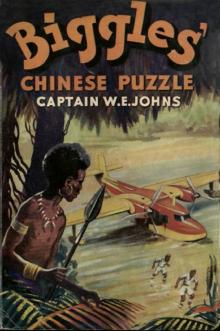 53 Biggles Chinese Puzzle
53 Biggles Chinese Puzzle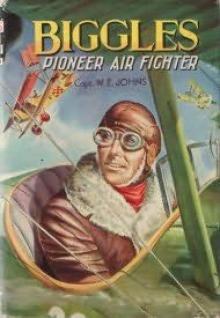 Biggles Pioneer Air Fighter (51)
Biggles Pioneer Air Fighter (51)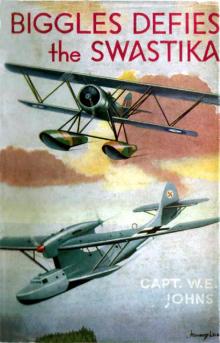 22 Biggles Defies The Swastika
22 Biggles Defies The Swastika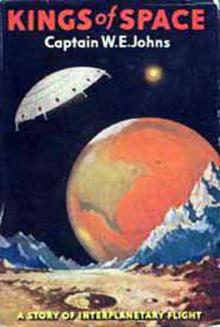 01 Kings Of Space
01 Kings Of Space